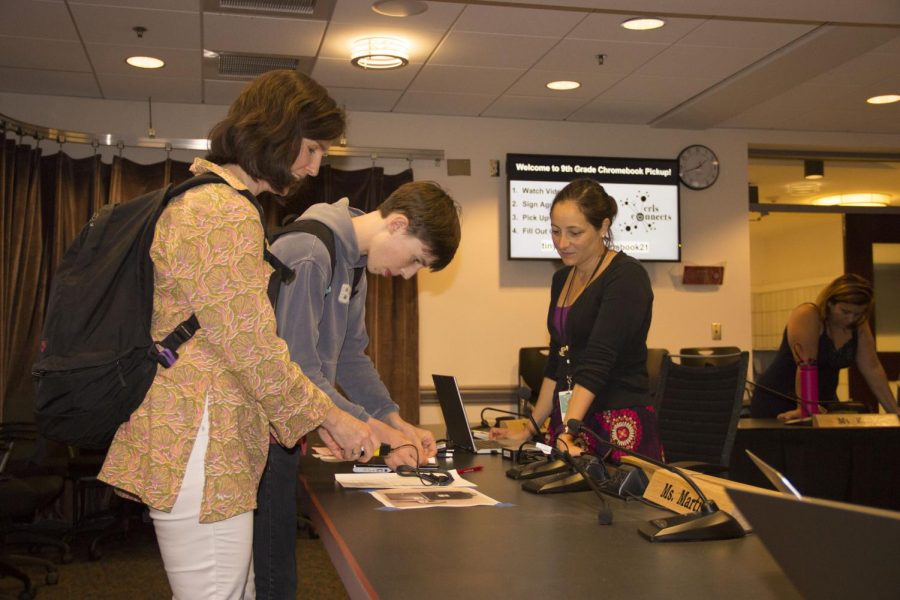Chromebook Policy Does Not Follow School Motto
Freshman students and their families picked up their Chromebooks during the first couple weeks of October.
September 28, 2018
This year, the school administration announced that only Chromebooks would be allowed on the CRLS Wi-Fi connection. This announcement was met with backlash from the student body: specifically, one of anger.
The fact of the matter is that this school should be on the side of allowing students more freedom, not taking their choices away. The idea behind Chromebook distribution should not be to create a level playing field by bringing people with better devices down, but to get all students to an acceptable level—a baseline—by raising them to the level of having them in the first place.
The first reason for the restriction of Wi-Fi given by Principal Smith at a recent School Committee meeting where these changes were discussed—that coordination can be difficult with devices that don’t use the G-Suite of office applications—is misinformed. Any computer can access the G-Suite, regardless of operating system. The only potential reason that a computer couldn’t access the G-Suite would be due to the very same loss of Wi-Fi access that is going into effect.
The second reason given was that it would create equity amongst the students with regard to internet access during school. However, this reason is questionable from a logical standpoint and actually stands in contrast to the school’s motto. Instead of simply providing an opportunity to students without computers to complete schoolwork, the opportunity of those with better devices to truly excel has been restricted.
There is no diversity of ability, because rather than allowing devices that work better than what the school allows to persist, the students have been handicapped (“Harrison Bergeron,” anyone?) in order to reach a status quo—no matter if the result is that everyone is saddled with a mediocre computer, regardless of whether or not they want to be legally responsible should it be lost or come to harm.
It’s worth noting, for the sake of transparency, that I myself do not own a personal computer.
Lastly, it shows that administration doesn’t respect or trust the student body with anything that they cannot remotely lock or monitor, keeping them confined to a meticulously curated walled garden in the center of a vast forest. Thus, it is arguable that the decision to limit school Wi-Fi access goes against what the school, at the very least ostensibly, stands for.
Unfortunately, for all the gripes to be made about this decision, it is ultimately not disastrous enough to warrant any change from our current administration. What has been done is like the tightening of a bolt on a well-running engine that makes the device sputter and shoot out clouds of smoke, but results in only slightly worse performance.
Despite this, I think that it’s still worth it to speak out against these restrictive rules. Though the engine may only be spewing harmless smoke now, there’s no telling what will happen when future bits and pieces are removed.
This piece also appears in our September 2018 print edition.










